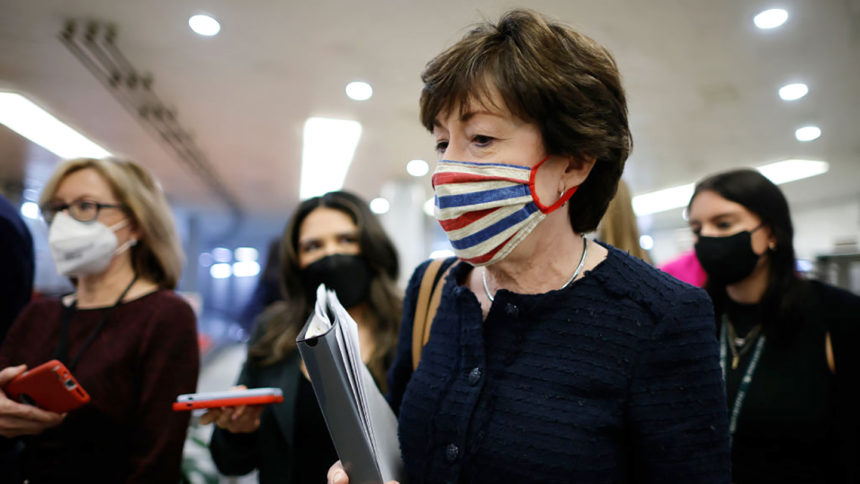
Sen. Susan Collins (R-ME) (Credit: Chip Somodevilla / Staff / Getty Images)
A new bill delaying “onerous paperwork requirements” and expanding allowable uses for Provider Relief Fund dollars has garnered bipartisan support.
The Provider Relief Fund Improvement Act, introduced by U.S. Sens. Susan Collins (R-ME) and Jeanne Shaheen (D-NH) would delay PRF reporting requirements until after the public health emergency is over and would allow providers to use those dollars to enhance workplace safety.
“As healthcare providers continue to struggle with staffing shortages, financial difficulties and other challenges, the last thing we should be doing is adding to their burden by imposing onerous paperwork requirements,” Collins said in a statement.
To date, the PRF has distributed more than $178 billion to more than 410,000 providers. That includes $11 billion in Phase 4 Provider Relief Fund monies that went out to 74,000 healthcare providers, including senior living providers, as of last month.
A spokeswoman from the American Health Care Association / National Center for Assisted living said the bill is a good first step and, if implemented, will be critical to providers who continue to struggle during the pandemic.
“In addition to the assistance from this legislation, it is essential that Congress replenish the Provider Relief Fund in the upcoming omnibus package,” the spokeswoman said. “Long-term care providers are in need of additional resources and support, given the recent omicron surge and ongoing economic and workforce crisis.”
Shaheen said the PRF has helped providers “stay afloat amid unprecedented stress and demand for their services” during the pandemic.
“We are still in the midst of this pandemic, and now is not the time to divert providers’ focus from their life saving work to navigate a maze of complex reporting rules,” she said.
The PRFIA would help long-term care and other healthcare providers specifically by:
- Extending current reporting and use-of-funds deadlines to the end of the pandemic.
- Ensuring that workplace safety improvements — security personnel, risk assessments and physical improvements, including panic buttons and security cameras — are an allowable use of PRF dollars.
- Directing the Health Resources and Services Administration to distribute any remaining funds by the end of the public health emergency or by March 31.
- Creating an application process for certain providers to receive funds returned in compliance with previous deadlines.
Brian Lee, a healthcare attorney and partner at Alston & Bird in Washington, D.C., called the proposal a “commonsense correction” to the various deadlines to use and report on the use of PRF payments.
“By tying the deadlines to the end of the COVID-19 public health emergency, providers will have more stability and certainty without the potential threat of a recoupment based on when a prior PRF payment was received,” Lee said. “If enacted, this legislation would essentially hit the reset button, and provide additional flexibility and breathing room for all PRF recipients to take a step back and assess COVID-related expenses and losses at a big picture level.”
The change, Lee added, also would give the HRSA time to think through certain open questions related to the use of and reporting on PRF dollars, including reviewing alternate lost revenue methodologies and working with providers on acceptable approaches in advance of reporting on payments received.
Last fall, Collins and Shaheen led a group of 50 senators in urging the Department of Health and Human Services to distribute remaining COVID-19 relief and opposed attempts to slash funding from the PRF.
The Provider Relief Fund Deadline Extension Act — introduced last summer by Sens. Kevin Cramer (R-ND) and Michael Bennet (D-CO) — similarly sought to move the spending deadline on PRF dollars to either the end of the year or the end of the COVID-19 pandemic public health emergency. That bill was referred to the Senate Committee on Health, Education, Labor and Pensions.




